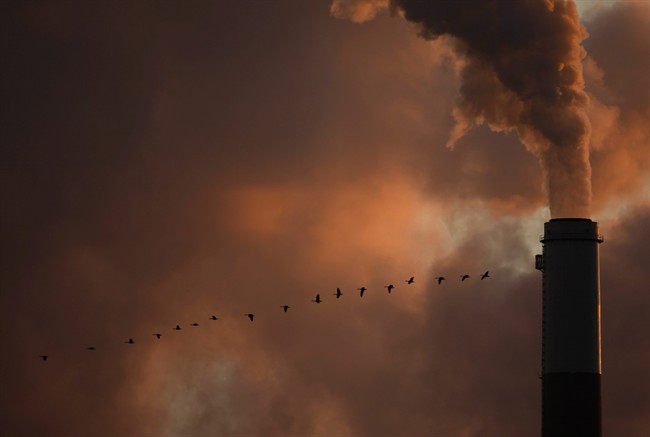COPENHAGEN – The United Nations’ expert panel on climate science on Saturday finished a report on global warming that the UN’s environment agency said offers “conclusive evidence” that humans are altering the Earth’s climate system.

The document, which combines the findings of three earlier reports, was adopted after all-night talks Saturday by the Intergovernmental Panel on Climate Change and is scheduled to be released to the public on Sunday.
Apart from discussing the human influence, it is expected to describe how climate impacts, including melting Arctic sea ice and rising levels, are already happening and could become irreversible unless the world curbs its greenhouse gas emissions.
The IPCC says scientists are now 95 per cent certain that the buildup of such gases from the burning of fossil fuels and deforestation is the main cause of warming seen since the middle of the 20th century.
IPCC vice chair Jean-Pascal van Ypersele wrote on Twitter that the report was adopted Saturday afternoon following round-the-clock talks.
The U.N. Environment Program said the report “offers conclusive scientific evidence that human activities continue to cause unprecedented changes in the Earth’s climate.”
In an interview with The Associated Press, UNEP head Achim Steiner said the world has the technology and capacity to act, and needs to do so urgently. The cost of achieving emissions cuts increases exponentially with each year “because you will have to make far more drastic changes in our economy,” Steiner said.
While the IPCC tries to avoid explicitly telling governments what they should do, the report will present scenarios showing that warming can be kept in check if the world shifts its energy system toward renewable sources like wind and solar power and implements technologies to capture greenhouse gases from the atmosphere.
Scientists and government representatives, who jointly approved the document line by line, worked all night until 5 a.m. Saturday, then rested for a few hours before resuming the session in Copenhagen.
—
Associated Press writer Jason Straziuso in Nairobi, Kenya, contributed to this report.

Comments